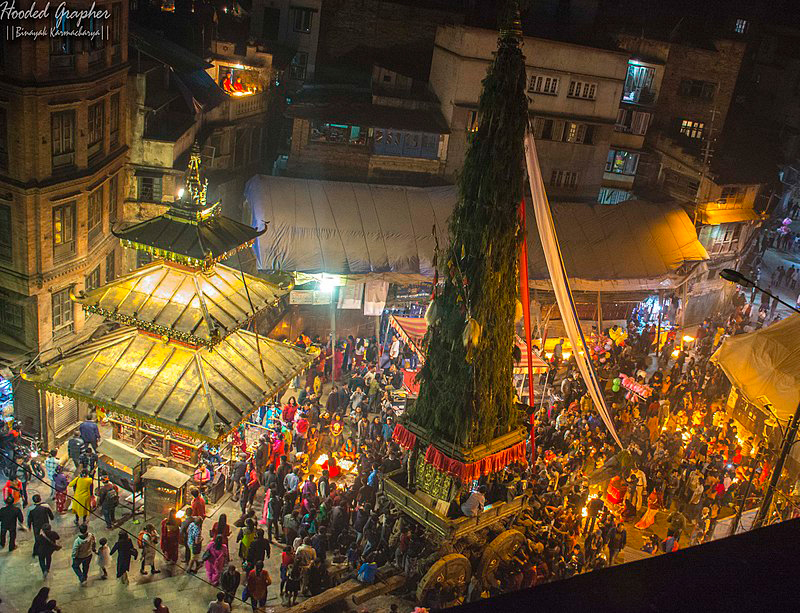 Kathmandu Chariot Festival
Kathmandu Chariot Festival Nepal: Kathmandu’s longest chariot festival honouring Lord of Rain commences
The chariot procession of Seto Macchindranath, one of the biggest chariot festivals celebrated inside Kathmandu valley, commenced on Wednesday, media reports said.
The event started at the point when the chariot rolled towards the main city square.
Hundreds of women came onto the street to pull the chariot through the mass of devotees with the fall of the day. The three days long Seto Macchindranath Jatra or the chariot procession honouring the god of rain is also known as Jana Baha Dyah Jatra, reports ANI.
A skyscraping chariot of Seto Machindranath is pulled from Teendhara Pathsala, in front of the former Royal Palace and is toured around the city during these three days. Each day when the chariot reaches its terminus, a group of soldiers fires their rifles into the air.
“We (women) have been pulling the chariot of Seto Macchindranath from 2073 BS (2017 AD). Women are voluntarily participating in the procession,” Nanira Maharjan, one of the members of the Baha Dyah Jatra organizing committee told ANI.
Seto Macchindranath is regarded as the god of contemporaneous and the god of rain who brings on rain and good harvest. After celebrating this festival, it is believed that there would be plenty of rainfall and famine would stay at bay.
Support Our Journalism
We cannot do without you.. your contribution supports unbiased journalism
IBNS is not driven by any ism- not wokeism, not racism, not skewed secularism, not hyper right-wing or left liberal ideals, nor by any hardline religious beliefs or hyper nationalism. We want to serve you good old objective news, as they are. We do not judge or preach. We let people decide for themselves. We only try to present factual and well-sourced news.







